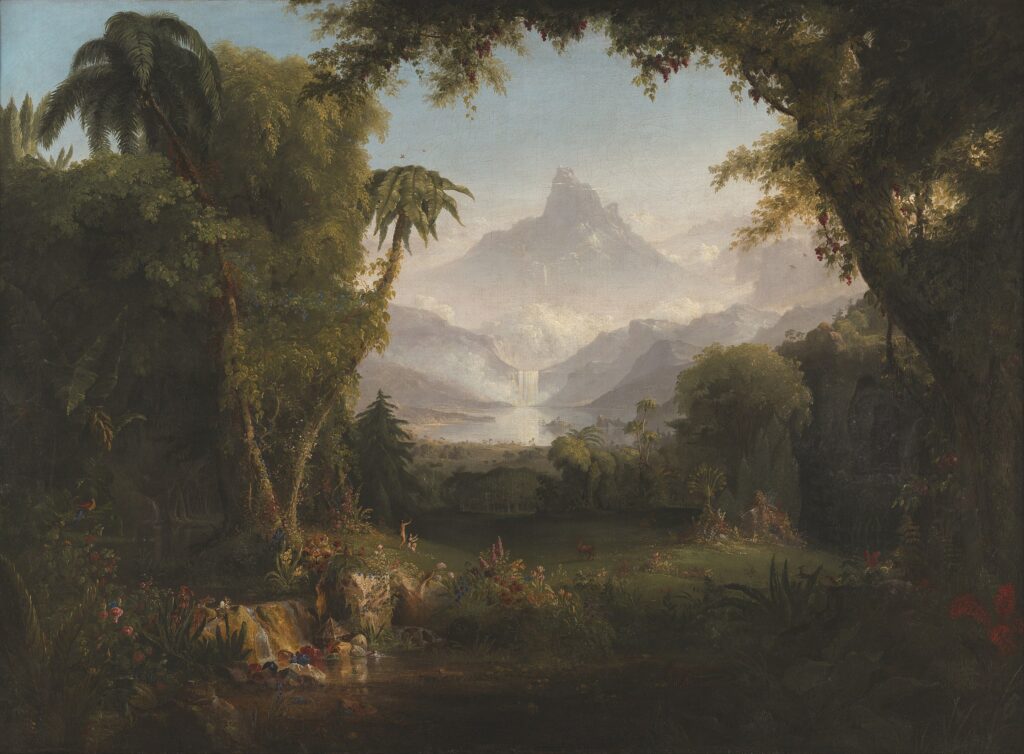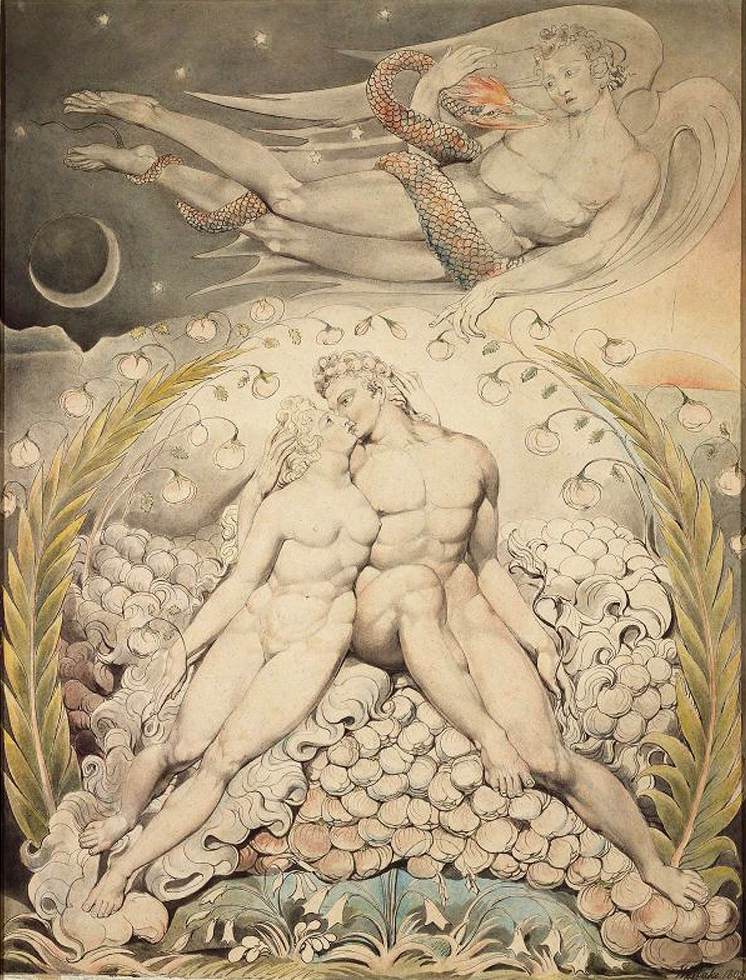But there went up a mist from the earth, and watered the whole face of the ground. And the LORD God formed man of the dust of the ground, and breathed into his nostrils the breath of life; and man became a living soul. And the LORD God planted a garden eastward in Eden; and there he put the man whom he had formed. And out of the ground made the LORD God to grow every tree that is pleasant to the sight, and good for food; the tree of life also in the midst of the garden, and the tree of knowledge of good and evil. And a river went out of Eden to water the garden; and from thence it was parted, and became into four heads. The name of the first is Pison: that is it which compasseth the whole land of Havilah, where there is gold; And the gold of that land is good: there is bdellium and the onyx stone. And the name of the second river is Gihon: the same is it that compasseth the whole land of Ethiopia. And the name of the third river is Hiddekel: that is it which goeth toward the east of Assyria. And the fourth river is Euphrates. And the LORD God took the man, and put him into the garden of Eden to dress it and to keep it. And the LORD God commanded the man, saying, Of every tree of the garden thou mayest freely eat: But of the tree of the knowledge of good and evil, thou shalt not eat of it: for in the day that thou eatest thereof thou shalt surely die. And the LORD God said, It is not good that the man should be alone; I will make him an help meet for him. And out of the ground the LORD God formed every beast of the field, and every fowl of the air; and brought them unto Adam to see what he would call them: and whatsoever Adam called every living creature, that was the name thereof. And Adam gave names to all cattle, and to the fowl of the air, and to every beast of the field; but for Adam there was not found an help meet for him. And the LORD God caused a deep sleep to fall upon Adam, and he slept: and he took one of his ribs, and closed up the flesh instead thereof; And the rib, which the LORD God had taken from man, made he a woman, and brought her unto the man. And Adam said, This is now bone of my bones, and flesh of my flesh: she shall be called Woman, because she was taken out of Man. Therefore shall a man leave his father and his mother, and shall cleave unto his wife: and they shall be one flesh. And they were both naked, the man and his wife, and were not ashamed. Genesis 2: 6-25 (KJV)
Thus saith the Lord GOD; In the day that I shall have cleansed you from all your iniquities I will also cause you to dwell in the cities, and the wastes shall be builded. And the desolate land shall be tilled, whereas it lay desolate in the sight of all that passed by. And they shall say, This land that was desolate is become like the garden of Eden; and the waste and desolate and ruined cities are become fenced, and are inhabited. Ezekiel 36: 33 - 35 (KJV)
We are so used to thinking of the Garden of Eden as the site of the Fall, and therefore of lost bliss, that it may come as a surprise that most references to Eden in Schubert’s song texts refer to hopes of bliss or ecstasy in the presence of the beloved. Kosegarten’s Die Sterne (D 313) culminates in such a vision:
O Sterne Gottes, Boten Und Bürger bessrer Welt, Die ihr die Nacht der Toten Zu milder Dämmrung hellt! Umschimmert sanft die Stätte, Wo ich aus stillem Bette Und süßem Schlaf erwach Zu Edens schönerm Tag! Oh stars of God, messengers from And citizens of a better world, You who offer to the night of the dead A mild, bright dawn to come, Gently shine around the place Where I, from a quiet bed And sweet sleep, wake up To Eden's more beautiful day!
In at least three texts the poetic persona explicitly connects being in the arms of the beloved with being in the Garden of Eden: Kosegarten’s Idens Schwanenlied (D 317); Stoll’s Labetrank der Liebe (D 302); and Matthisson’s Entzückung (D 413).
Mayrhofer’s strange Der Sieg rewrites ‘Paradise Regained’ in Der Sieg (D 805). The speaker claims to have won some sort of victory and is now able to eat the fruit of the tree of knowledge without suffering the dire consequences set out in Genesis:
Der Geist zerbrach die Schranken, Des Körpers träges Blei, Er waltet groß und frei. Es laben die Gedanken An Edens Früchten sich, Der alte Fluch entwich. The spirit broke the bounds Of the body's lumpish lead; It is in control, it is great and free. Thoughts are feasting On Eden's fruits; The old curse has been overcome.


☙
Descendant of:
RELIGIONTexts with this theme:
- Abends unter der Linde, D 235, D 237 (Ludwig Theobul Kosegarten)
- Labetrank der Liebe, D 302 (Josef Ludwig Stoll)
- Die Sterne (Wie wohl ist mir im Dunkeln), D 313 (Ludwig Theobul Kosegarten)
- Idens Schwanenlied, D 317 (Ludwig Theobul Kosegarten)
- Entzückung, D 413 (Friedrich von Matthisson)
- Der Sieg, D 805 (Johann Baptist Mayrhofer)
- Wiegenlied, D 867 (Johann Gabriel Seidl)


